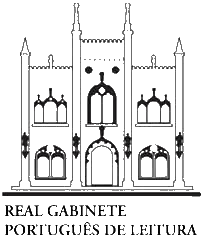Ginga or Jinga, king or queen: the pluriversal in two Angolan postcolonial novels
DOI:
https://doi.org/10.37508/rcl.2023.n49a670Keywords:
Jinga, Ginga, Pepetela, Agualusa, postcolonialismAbstract
Based on a dialogue with Portuguese colonial literature and Angolan nationalista literature, this article analyzes representations of Queen Jinga in two Angolan novels, A gloriosa Família, by Pepetela (1997), and A Rainha Ginga, by Agualusa (2015), with the aim of verifying the ways of portraying Jinga’s genre, warlike and diplomatic skills and the way of ruling people and the slave trade. As part of the post-colonial novels, the corpus encompasses the humanization of the historical character, desacralizing it and questioning the barbarian insignia.
Downloads
References
AGOSTINHO NETO, Antônio. O içar da bandeira. In: AGOSTINHO NETO, Antônio. Sagrada esperança. São Paulo: Ática, 1985.
AGUALUSA, José Eduardo. A rainha Ginga e de como os africanos inventaram o mundo. Rio de Janeiro: Foz, 2015.
FRANCO, Roberta Guimarães. Njinga Mbandi: do silêncio histórico às recriações ficcionais contemporâneas. matraga, rio de janeiro, v. 26, n. 48, p. 688-704, set./dez. 2019. DOI: https://doi.org/10.12957/matraga.2019.42389
HEYWOOD, Linda. Jinga de Angola: a rainha guerreira da África. Tradução de Pedro Maia Soares. São Paulo: Todavia, 2017. DOI: https://doi.org/10.4159/9780674979055
LUGARINHO, Mário Cesar; MAIA, Helder Thiago. Uma rainha em três continentes: gênero e sexualidade em torno de Nzinga Mbandi. In: WIESER, Doris; FALCONI, Jessica (Org.). DecliNações Género e nação nas literaturas e culturas africanas de língua. Coimbra: edições Almedina, 2022.
MATA, Inocência. Pepetela e a sedução da História. In: MATA, Inocência. Laços de memória e outros ensaios sobre literatura angolana. Luanda: União dos Escritores Angolanos, 2006.
MATA, Inocência. Narrando a nação: da retórica anticolonial à escrita da história. In: PADILHA, Laura; CALAFATE, Margarida. Lendo Angola. Porto: Editorial Caminho, 2008.
MATA, Inocência. Uma intensa disseminação: a África como locus na literatura portuguesa. Reflexos v. X, n°1, p. 1-11, 2012. Disponível em: <http://interfas.univ-tlse2.fr/reflexos/518 >. Acesso em 26 maio 2023.
OYĚWÙMÍ, Oyèrónkẹ. A invenção das mulheres: construindo um sentindo africano para os discursos ocidentais de gênero. Rio de Janeiro: Bazar do tempo, 2021.
PACAVIRA, Manuel Pedro. Nzinga Mbandi. Lisboa: Edições 70, 1975.
PEPETELA. A gloriosa família: o tempo dos Flamengos. Lisboa: Dom Quixote, 1997.
RAPOSO, Hipólito. A Rainha Ginga. In: RAPOSO, Hipólito. Ana a Kalunga: os filhos do mar. Lisboa: Ottosgráfica, 1926.
SILVA PEREIRA, António Xavier. A rainha Ginga, In: Novo Almanach de Lembranças Luzo-brazileiro para o ano de 1882. Lisboa: Typographia Lisboa, p. 230-231, 1881.
Downloads
Published
How to Cite
Issue
Section
License
Authors who publish in Convergência Lusíada agree with the following terms:
- Authors retain copyright and grant the journal right of first publication with the work simultaneously licensed under a Creative Commons Attribution-NonCommercial 4.0 International License (CC-BY-NC 4.0) that allows others to share the work with an acknowledgment of the work's authorship and initial publication in this journal.
- Authors may enter into separate, additional contractual arrangements for the non-exclusive distribution of the journal’s published version of the work (e.g., post it to an institutional repository or publish it in a book), with an acknowledgment of its initial publication in this journal.
- Authors are permitted and encouraged to post their work online (e.g., in institutional repositories or on their website) prior to and during the submission process, as it can lead to productive exchanges, as well as earlier and greater citation of published work.

Revista Convergência Lusíada is licensed under a Creative Commons - Atribuição-NãoComercial 4.0 Internacional.









